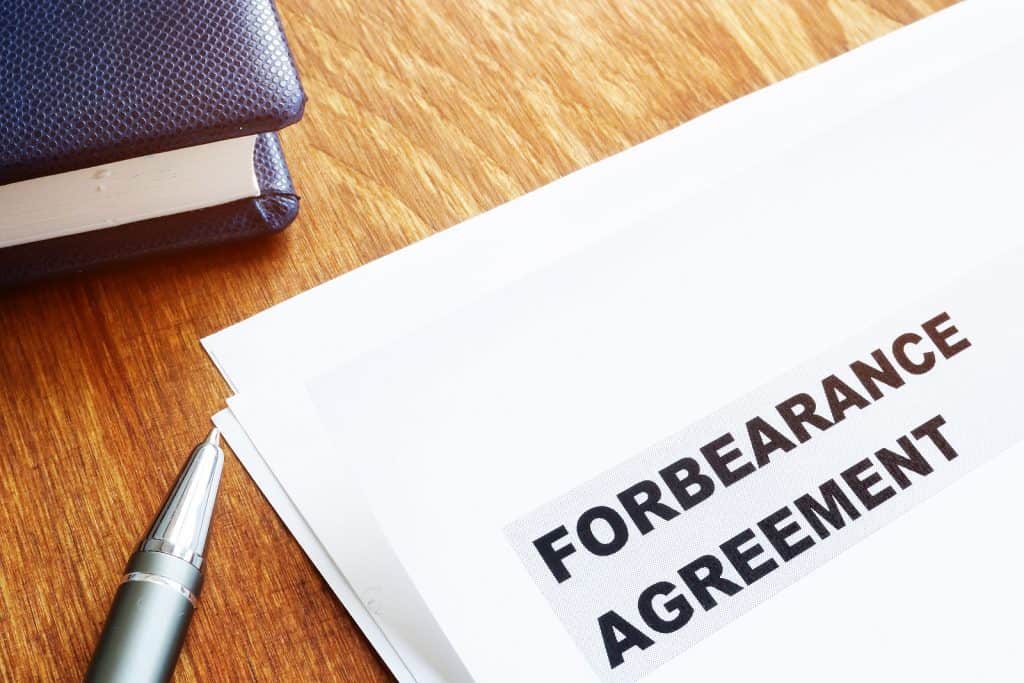Americans are struggling to make home payments thanks to the coronavirus. Apartment List, an online platform which connects renters with apartment listings, reported in a monthly survey that 32% of Americans had failed to meet some portion of their July housing payment, of which 19% failed to make any payment at all.
Under such circumstances, it is reasonable to expect an explosion in foreclosures. But the federal government passed a moratorium on foreclosures on loans backed by Fannie Mae and Freddie Mac as part of the CARES Act, and subsequently extended it until August 31.
The alternative to foreclosing has thus been forbearance. But given that according to CNBC, less than 1% of overall mortgages were in forbearance before the pandemic, it is hardly surprising that many homeowners even now still do not understand what it is. Homeowners need to understand what forbearance, how it could apply to your conditions, as well as the serious risks which can come with that approach.
What is Forbearance?
While a foreclosure causes you to lose your house because you cannot make payments, a forbearance is a temporary reprieve. In a forbearance, your lender decides to allow you to delay or temporarily reduce your monthly payments.
The CARES Act allowed residential borrowers with federally backed mortgages to apply for up to 360 days of loan forbearance. Furthermore, many states like Washington and New York are heavily pressuring banks to grant forbearances to applicants. If you can show hardship caused by the coronavirus, you will get a forbearance.
There is no mandate for private banks to grant forbearances for their loans, but under the current cases it will often be in their interest to go for forbearances instead of an outright foreclosure. As the coronavirus is a temporary matter, banks may hope that it is better to get a delayed payment instead of dealing with the mess that is foreclosure. Foreclosing right now is going to be even more difficult for a number of reasons. Alston & Bird notes that banks will face desperate clients who will be more willing to tie things up in court arguing force majeure, all while courts are more tied up as operations have become more difficult due to the disease.
In summation, anyone who is in a tight financial situation should consider forbearance as an option. If your loan is backed by the government, then you can get it. If your loan is not backed, you should still talk with your lender who may very well be willing to work with you to avoid a foreclosure.
The Problem with Forbearance
Being able to defer your loan payments may sound like a pretty sweet deal. But if homeowners are not paying attention, they can find themselves in an even worse situation than if they had attempted to pay their mortgage regularly.
As every homeowner’s situation is slightly different, every type of forbearance is slightly different. But forbearances generally take on a few forms, with some of those forms being extremely dangerous.
A key distinction between forbearances is how long you will have to repay the amount you did not pay from not making full mortgage payments. Some lenders will allow a deferment for six months, but then demand the entire six-month payment at the end as a single lump sum. If you pay $1000 per month, you would find yourself suddenly having to pay $6,000 all at once in six months. Some homeowners may even find themselves paying more due to charged interest, though that is not allowed in government-backed loans.
Other lenders will simply reduce the payment, and then ask you to pay the remainder either immediately or over time such as 12 months. Alternatively, homeowners can seek to alter the terms of their loan, such as by extending the loan terms or lowering the interest rate.
Pay your Mortgage if Possible
None of these problems are to suggest that you should not even attempt to apply for a forbearance. If you think that option is best, you should first check the Fannie Mae, Freddie Mac, or FHA websites to confirm that your mortgage is government backed given that will make the process easier.
Even if it is not, there is no harm in asking. While a forbearance under normal circumstances would harm your credit rating, the government has decreed that does not apply to anyone who applies for one now. Even if you do not plan on getting a forbearance, this is a good time to discuss your mortgage terms with your lender.
But at the same time, a forbearance is not always the right option. You may save some money, but be required to pay up a huge sum all at once later or over time. If you can pay your monthly payment, do so without looking for one easy way out.



